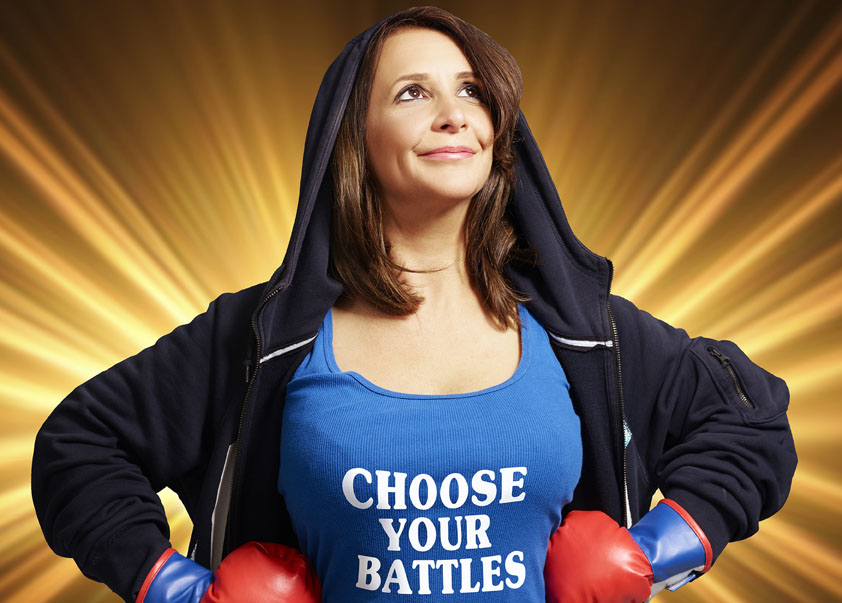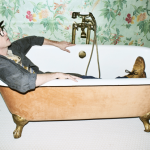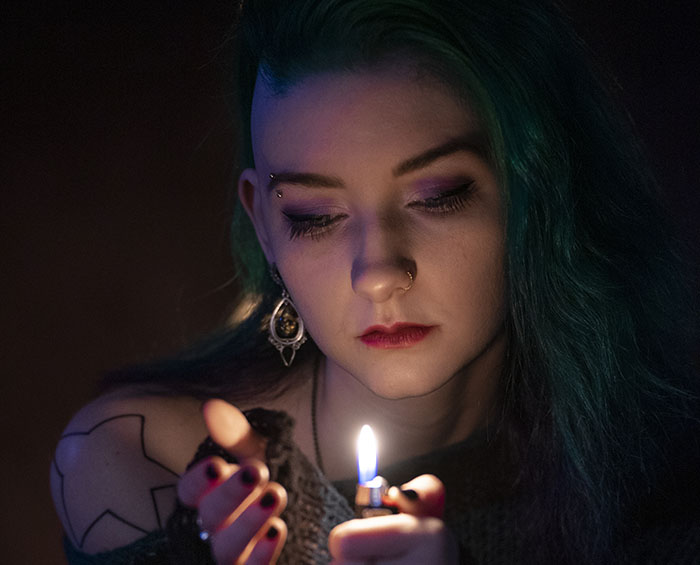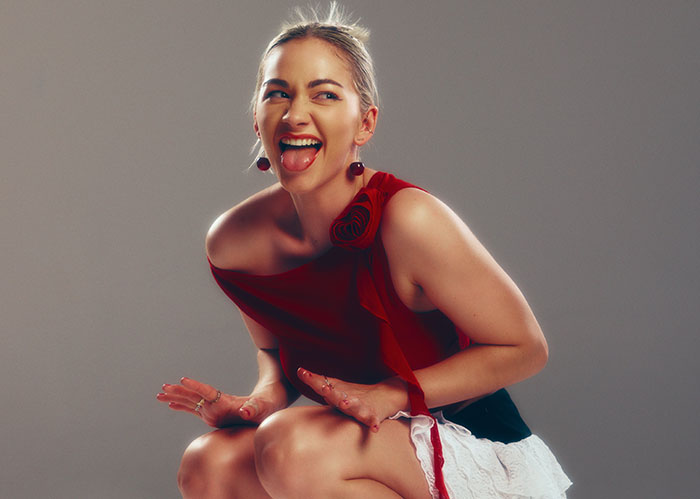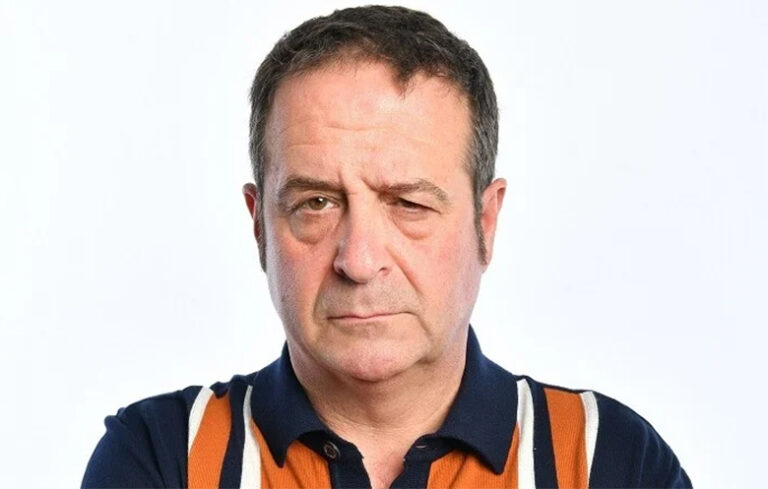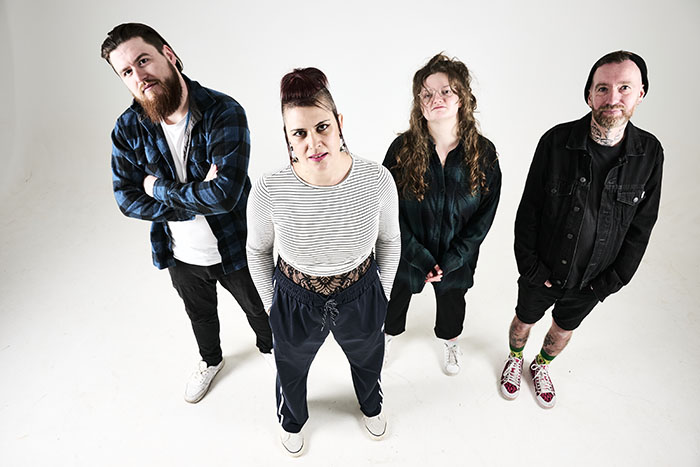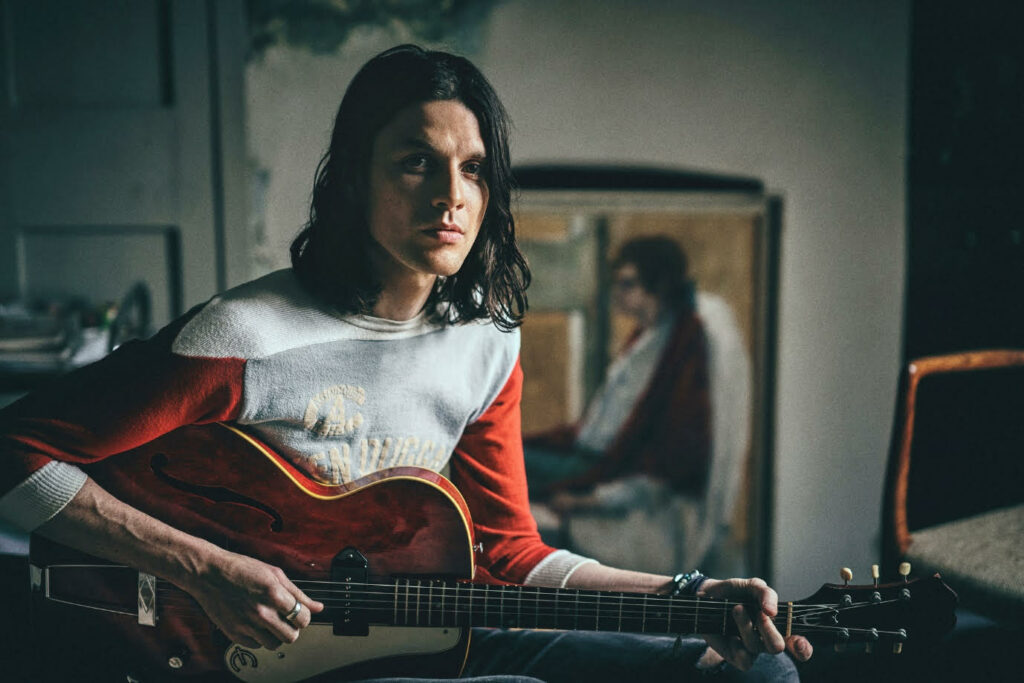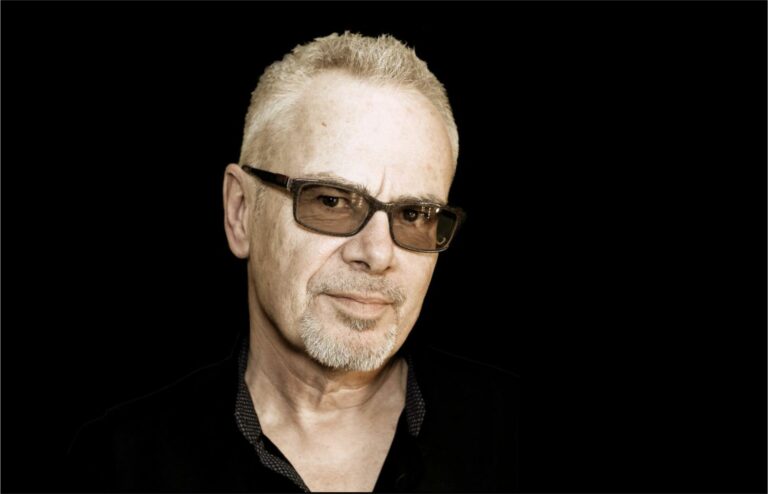Lucy Porter gives an interview ahead of her new tour “Choose Your Battles”
Q: What inspired your brilliant new live show, “Choose Your Battles”, which you are currently touring nationwide?
A: It comes from issues I’ve had with parenting. Benign neglect seems to be the popular contemporary approach to parenting. That fits with my life philosophy which is that you have to let a lot of stuff go. So the central theme of the show is: as a parent, which things should you concentrate on and which things should you let go? If you’re trying to get your kid out of the door in the morning, should you get them to clean their teeth or put their shoes on?
Q: What made you confront this issue now?
A: I had lived alone for so many years in a blissful state of isolation. Now I have more tension in my life. I’m suddenly living in a house full of people and cats!
Q: What specific issues have placed you in this dilemma?
A: One is the question of whether it is ever acceptable to let your children eat the food left over on someone else’s table in a cafe. It happened recently and I went to intervene. Then I left it. I thought, “They’re happy, and anyway it’s free food!” I also think germ phobia has gone mad. I’m determined that my children should eat as many germs as they can!
Q: What else has been causing tension in your house?
A: Every year World Book Day is a constant struggle between what my children want to do and what I want them to do. I’m a bit of a literary snob. I’m trying to guide them down the Jane Austen route, but they want to go as princesses and superheroes. I suppose as long as my son wants to go as a princess and my daughter wants to go as a superhero, that’s all right!
Q: Do you also talk about other parents in “Choose Your Battles”, which was such a hit at the Edinburgh Festival last year?
A: Yes. You have to choose the liberal issues you fight for. It’s all about showing off your parenting to other parents. But I’ve concluded that it’s best never to try and impress other people with your parenting!
Q: Why have we become so concerned about the calibre of our parenting?
A: We are more aware of the psychological damage we might cause our children, but I think we actually overestimate how much influence we have on them. You imagine visiting them in prison in 20 years’ time and them tracing their troubles back to the moment when they weren’t allowed an ice cream. But you simply cannot avoid the fact that your children will hate you at times!
Q: So are we over-analytical as parents?
A: Yes. We are in danger of losing trust in our own abilities. Our children will grow up fine whatever. What we do has so little bearing on our children. We are all guilty of micromanaging our children when in fact they don’t remember anything before the age of two. I felt very guilty about breastfeeding. I spent so many hours agonising unnecessarily about that, but isn’t that just like life in general?
Q: Should we give ourselves a break, then?
A: Yes. We have to keep things in proportion. Trump could tweet Kim Jong Un something provocative tomorrow and we could all go up in a fireball. As horrific as that sounds, it does put things into perspective.
Q: Do you rely at all on parenting manuals?
A: No. I’ve never read a single chapter of a parenting manual. It’s pointless trying to read too much about parenting. A lot of it has to be intuitive. We have so many points of references about everything these days. You can’t just cook a meal any more. You have to watch a half-hour video on YouTube about how to prepare it. But I’m of the “teach yourself” school. If you ever come round to my house and see my DIY, you’ll know that’s the case. Before embarking on a DIY task, I always think, “It can’t be that hard.” But then when I’ve mucked it up, we immediately have to consult a professional.
Q: Were our mothers and fathers better at parenting, then?
A: We are all very nostalgic for the hands-off parenting of the 1970s. But the downside is that is that I don’t remember seeing my dad very much back then. Maybe I wouldn’t be such a terrible show-off and attention seeker now if he had been around and I hadn’t had to try to build up my self-esteem in front of a room full of strangers.
Q: What other themes do you tackle in “Choose Your Battles”?
A: We live in combative times. Social media has made us crazy with each other. There are far more public-space arguments now. In some ways, that’s brilliant because people are expressing themselves, but in other ways, it’s utterly horrific. So I’m asking: how do you stand up for yourself and argue with people online?
Q: Tell us more.
A: Politically, I’m very worried about things at the moment. Sometimes it feels like we’re going back to the 1930s. Is this how fascism started in Germany? Representative democracy seems to be collapsing around our ears. I’ve never been so concerned about not being mainstream. So in that climate, you feel you want to stand up for what you believe in.
Q: How do you feel about President Trump?
A: I in no way endorse Trump, but he makes British politicians look capable, which is quite a remarkable feat! US politics is Dr Strangelove and terrifying, whereas British politics seems like slapstick comedy.
Q: Would you go out and protest against him if he came to the UK on a state visit?
A: You do sometimes wonder what the best course of action is. If Trump came here, should we stand and point and laugh and show him our bare bums or should we riot? I probably won’t be able to get childcare, anyway, so I’ll end up watching it on TV. This is what my life has become. I now mostly get wound up about parking and bins.
Q: Will the subject of Brexit feature in the show?
A: Yes. Brexit rumbles on. It’s a constant drone that underpins everything. There is always a Brexit element in the room. But I feel I should get out of the way early in “Choose Your Battles.”. Perhaps I’ll cover Brexit through the medium of contemporary dance at the top of the show, so don’t I don’t have to put us all through a lengthy routine about it!
Q: Does this time of political turmoil actually have the unforeseen effect of giving you more material?
A: Yes. Comedians talk about the curse of happiness. I had a couple of very smooth years when my Edinburgh shows suffered. The cliche is that stand-ups prefer it when the Tories are in power because we have something to rail against. Conflict makes for better comedy. Stand-ups use it as a coping mechanism for themselves. When things are going to disastrously wrong, as a comedian you always think, “Oh well, at least it’s material!” It would be nice to be able to fix yourself through comedy, but of course you can’t. You can only distract yourself.
Q: What do you love about live comedy?
A: The thrill of it is absolutely unsurpassed by any other form of creative endeavour. I do radio and TV, and they’re lovely things to do. But there is nothing like being able to sniff the audience, get amongst them and ruffle their hair. That common experience is especially important in difficult times. Loneliness is the number one malaise we need to tackle in society. So there’s nothing more uplifting than laughing with a group of strangers. Conversely, there’s nothing worse than being greeted onstage with silence by a group of strangers! But there is something magical and visceral about being in a room full of people all laughing together.
Q: Can you amplify that?
A: I do stand up on TV quite infrequently. The idea of committing it to film scares me because stand-up is so much a live art form. If I see myself doing stand-up on TV, I think, “No, you had to be there. This is not the same.” That’s a long way of saying I still love doing stand-up!
Q: What do you hope that audiences will take away from “Choose Your Battles”?
A: I hope people really enjoy the show and have a great laugh. It provides a moment of distraction and laughter in these troubled times. Friendship is very important to me. It’s a very nice thing that a lot of people come to see me year after year.
Q: What do your fans tell you they particularly like about your shows?
A: They say my shows feel like a little dinner party. They meet up with each other at the shows. They tell me, “We came to see you and met these other people, and now we go to comedy shows with them.” I encourage that fellow feeling. That warmth and friendliness is what I hope people will take away. But I should warn you, I don’t answer any questions in the show – God forbid! Don’t come to the shows seeking wisdom or guidance – there will be none of that!
